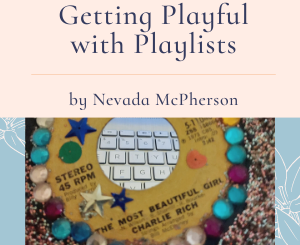How to Edit Your Novel in 3 Steps
Hats off to all the NaNoWriMo writers as you finish up the month!
After writing your novel — be it a romance, mystery, thriller, fantasy, horror, or science fiction — and letting it sit — I let my novels sit for 1 year — edit your novel in layers. (Steven Pressfield inspired this post since he also edits his books in multiple layers as he explains here.)
Instead of tearing through the knots, I liken editing my novels to brushing tangled hair, a bit at a time.
In bite-sized pieces here are my 3 steps. I call them “passes.”
1st pass: Clarity of Language
As you read your manuscript this first time through, ask yourself, “Is this clear?” And sometimes, “What did I mean here?”
Add sensory detail so your readers can see, hear, taste, feel, and smell. Use at 1 to 3 senses to bring your scenes to life.
2nd Pass: Why? And, So What?
In the second pass, pay attention to your character arcs and make sure each character’s motivation is clear. So ask WHY did he do that? or, Why does she want that?
Also SO WHAT? What’s important about this scene? That character?
You want your readers to identity with your characters and loose themselves in your story.
3rd Pass: A Page Turner?
In this third pass, read with an eye to story flow. Are you engaged? Do you want to turn the page?
Many things go in to making readers turn the page.
Here are my 3 essential elements:
- making sure the reader feels
- making sure the reader cares about and identifies with the characters in the story
- creating a sense of worry/concern
These are my main 3 editing passes. I actually have a few more steps or passes, because once I’m through making these changes, I double-check my work and get outside input, so here’s a few more Bonus Passes.
4th Pass: Critique Group/Beta Readers
Get together with a few other writers you trust, treat your writing with as much importance as you do, are able to offer useful feedback to improve your manuscript.
You can also work one-on-one with readers who are already fans of your work, or would like to be.
5th Pass: Input/Fixes
In this pass, input the feedback from your beta readers/critique group.
6th Pass: Review & Complete
During this pass, I feel close to the end! Yeah! I review my manuscript for these items:
- clarity
- can you feel it?
- page turner?
- do you care about the characters and the story?
You’re done with your editing! Congratulations!
At this point, I usually hand off my manuscript to a trusted proofreader, then book layout and ebook conversion.
Share your gift with the world!
Resources
Self-Editing for Fiction Writers, Second Edition: How to Edit Yourself Into Print by Renni Browne and Dave King
Writing Alone and with Others by Pat Schneider and Peter Elbow
I’ve been using this Nano month to edit book 2 in my fantasy series, Henrietta and The Dragon Stone.
How do you edit your novels? What stage of editing is easiest, the hardest? The most fun? Please share in the comments!








I’m a novice novelist, and for me the toughest editing has involved SPAG, like typos (I can always see where fatigue and tremors were major factors), and when and when not to use hyphens, (like, a well-written novel and a novel well written).
Believe me, this first outing has been a big education. The next time out, I will try to get the funds needed to get a really good content, continuity, and SPAG editor, even if it means selling a kidney to pay for it.
I too have a huge and horrible time with SPAG. (Love your name for all that stuff!) I also use the Chicago Manual of Style on things like hyphens, ’cause I’m geeky that way.
The elements you need help with are often in the realm of different editors, and then perhaps you won’t have to sell a kidney to pay for some of the help you need.
Wow! What a great routine to follow! My biggest problem is patience. I also put my work away to review later, but a year?? This will be a challenge for me. Thanks for the advice.
CF, Thanks for stopping by! ANd I hear you about the patience. When I run out of patience I get others to look at my manuscript. That often helps me re-ignite the focus. You’re welcome for the advice, and good luck!